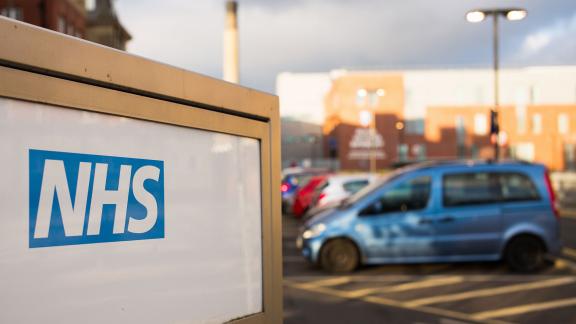‘How we do things around here’: thoughts on the NHS operating framework

Consistency across national leadership is needed for successful local autonomy, writes Professor Sir Chris Ham, who outlines key areas that he believes are missing from the NHS operating framework.
The proverbial visitor from Mars could be forgiven for struggling to understand how the NHS in England works. A range of organisations at the national, regional and local levels are involved in planning, providing and regulating care with new bodies like integrated care systems overlaid on already complex arrangements. Hardly surprising then that national NHS leaders have felt it necessary to seek clarity in the form of a new operating framework that, in its own words, sets out ‘how we do things around here.’
The framework is organised around four core foundations of NHS England’s work. These are its purpose, how it adds value, leadership behaviours, and medium-term priorities and long term aims. The intention is that the framework will inform how national bodies work in future and how they relate to integrated care systems and the partnerships that make up these systems, in improving the health of their people and patients and reducing health inequalities. It has been produced in discussion with leaders across the NHS and will be developed further with their support.
devolution will be tempered by oversight and intervention in organisations and systems facing performance challenges
While the stated aim of the framework is to give system leaders ‘the agency and autonomy to identify and the best way to deliver agreed priorities in their local context,’ devolution will be tempered by oversight and intervention in organisations and systems facing performance challenges. NHS England at both a national and regional level retains statutory powers to act when serious concerns arise and will work with integrated care boards in the ‘enforcement’ of corrective action. In doing so, leaders must recognise that performance challenges result from the interaction of different parts of the system as well as shortcomings in individual organisations and respond accordingly.
Developing the capabilities to work together
The promise of integrated systems is precisely that they can work with NHS trusts and other partner organisations in leading improvements in care and outcomes that require actions across the health and care system. If they are to succeed, they must develop rapidly the capabilities needed to work in this way and be supported by NHS England to do so. This includes recognising that change must be negotiated between many partners, each with their own roles, responsibilities, boards and accountabilities. Governance arrangements need to be underpinned by meaningful collaborative relationships if integrated systems are to realise their potential.
The challenge will be to ensure the framework’s aspirations are carried through into practice in a complex adaptive system where entrenched ways of working are not easily or rapidly disrupted
The challenge will be to ensure the framework’s aspirations are carried through into practice in a complex adaptive system where entrenched ways of working are not easily or rapidly disrupted and where there is often a gap between intention and action. Culture change in an organisation as large and complex as the NHS requires skilful leadership and a constancy of purpose that is in short supply. It also calls for the judicious use of top-down, bottom-up and horizontal interventions as the NHS seeks to become a dynamic and self-improving system less reliant on command and control and better able to share the expertise that exists within.
Unaddressed issues
Three issues are not addressed adequately in the framework. First is the relationship between NHS England and the Department of Health and Social Care. Both bodies are involved in providing leadership at a national level and yet the framework is silent on how they will work together to avoid duplication and ensure clear and consistent guidance on priorities and outcomes. The best efforts of NHS England to develop new ways of working may come to nought if ministers and civil servants behave in a way that is inconsistent with the framework. Regulators like CQC must also be fully aligned with its intentions.
Second is the future of national programmes run by NHS England in areas such as cancer care and mental health. These programmes are often experienced as disjointed by NHS organisations at a local level, reflecting the many silos within NHS England and the discretion available to programme directors to determine how to lead change in their areas. There is a strong case for reducing the number of these programmes, ensuring greater consistency in how they work with NHS organisations, and limiting the proportion of resources allocated in this way. This would create time and space for local priorities to be addressed and achieve genuine devolution to integrated care systems in line with the ambitions of the framework.
It would be a huge missed opportunity if work to address the wider determinants of health is crowded out by a focus on a narrow range of national NHS priorities
Third, the framework focuses mainly on the role of integrated care boards and makes only passing reference to the role of integrated care partnerships within integrated care systems. These partnerships bring together NHS organisations, local authorities and others to develop strategies for improving the health and wellbeing of the people and communities served by systems. It would be a huge missed opportunity if work to address the wider determinants of health is crowded out by a focus on a narrow range of national NHS priorities, important as these are.
Unanswered questions
Reading the framework, the visitor from Mars might be wondering how new ways of working between organisations at the national, regional and local levels will make a positive difference to staff providing care and the patients and populations they serve. Specifically, will the burden of regulation be reduced to create more time to care? Will support be available to enable clinical teams to improve care? Will there be investment in peer learning and knowledge sharing and less reliance on top-down scrutiny? And will local leaders be able to look out more and engage with the people and communities they serve?
…most of the answers to performance challenges lie with the staff delivering services
The framework has little to say about these questions although at the very end it states that NHS England’s change programme will focus on ‘integrating the wisdom of frontline services in everything we do.’ In truth, this statement appears to be an afterthought rather than a guiding principle of the proposed approach. Clinical teams were instrumental in adapting how services were delivered during the pandemic response and their contribution is equally important as work continues to tackle care backlogs.
Changes to the superstructure of the NHS may be a necessary condition of success in the new NHS but they are far from sufficient. A wise business leader once explained to me that in human service organisations like the NHS, most of the answers to performance challenges lie with the staff delivering services. That simple truth should be at the heart of the next iteration of the framework.
Professor Sir Chris Ham is co-chair of the NHS Assembly, Emeritus Professor of the University of Birmingham and former chair of the Coventry and Warwickshire Health and Care Partnership. You can follow Chris on Twitter @profchrisham


